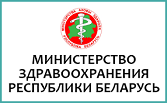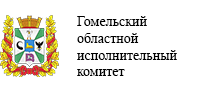Recommendations for oral care in chemotherapy
Chemotherapy has a negative effect on the oral mucosa. This is manifested by the development of stomatitis and ulcers. These sores are an open gate for any infection: bacteria, viruses and fungi. With prolonged use of chemotherapy, multiple tooth caries can develop. In the oral cavity many microorganisms, and the mucous membrane is often injured, so against the background of chemotherapy, local infections easily arise.
In order to reduce the manifestation of these complications, you should observe some rules of oral care:
- Before starting a course of chemotherapy, you should consult your dentist and cure or remove the aching teeth.
- Acquire a new soft toothbrush (after use, wash the toothbrush thoroughly and store it in a dry place)
- Brush your teeth after each meal.
- Use soft pastes that do not irritate the oral mucosa.
- If the lips are dry, treat them with neutral fat or an oil solution of vitamin A.
- Patients with removable dentures should take a prosthesis once a day, soak for 30 minutes in an antifungal and antibacterial solution, then rinse thoroughly with water. Do not leave the prosthesis in the mouth during sleep.
If you still have soreness and inflammation of the mucous membrane of the mouth and gums, it is recommended:
- Eating food is cold or at room temperature.
- Eat soft foods (mashed potatoes, cereals, scrambled eggs, processed cheese, pasta, bananas, apple puree, etc.).
- Pre-soak in a liquid of a firm and dry food. Add oil to dry food, a quick sauce or broth.
- Do not use acidic and irritating foods (tomatoes, oranges, marinades).
- Do not eat spicy or salty foods.
- Try to stop smoking.
- After each meal rinse your mouth.
- If food causes severe pain in the mouth, sores appear, fever has risen, it is urgent to perform a general blood test and contact a doctor, this may be one of the symptoms of febrile neutropenia, and you need treatment in a specialized hospital.
- If you have already received chemotherapy, which led to inflammation of the oral mucosa, adhere to these recommendations from the first days of the next course of treatment.
During chemotherapy, patients often develop immunodeficiency, so dental infection or treatment can have serious consequences. Prevention and periodontal therapy should ideally be performed before the appointment of chemotherapy or after completion. For patients with leukopenia, thrombocytopenia treatment should be delayed.



















